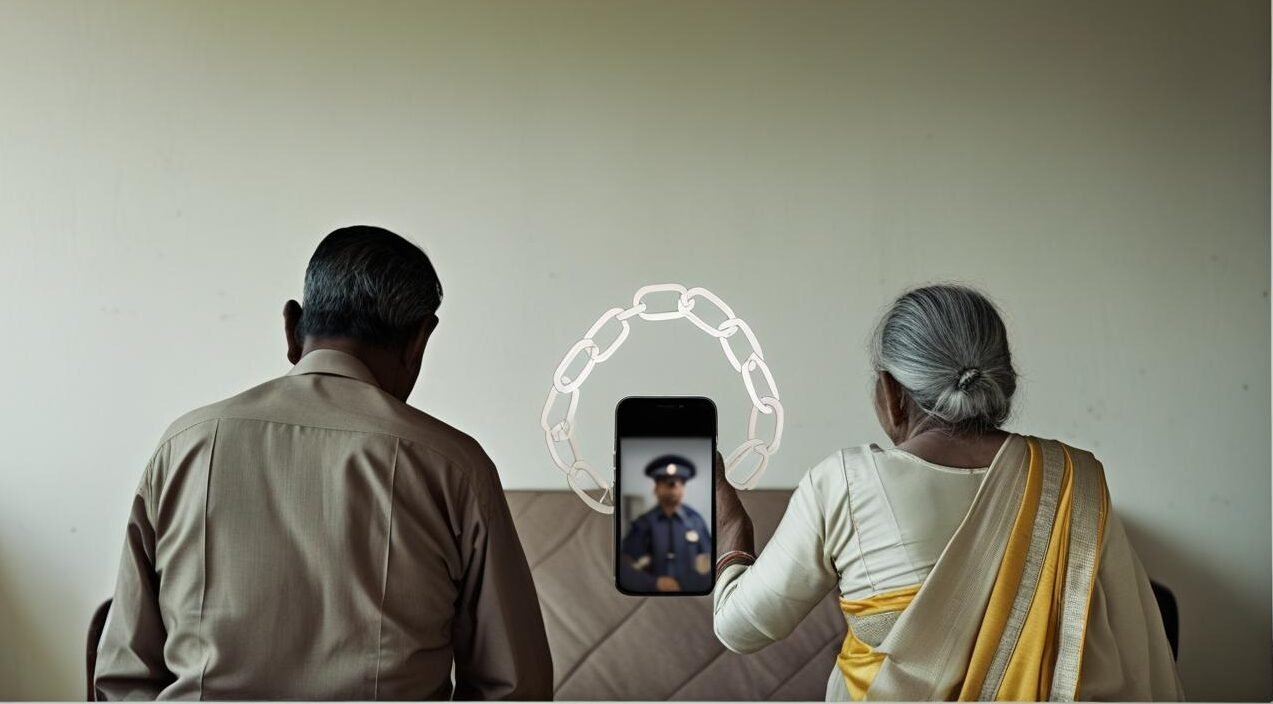In a sophisticated cybercrime echoing the darker side of India’s digital boom, two men from Gujarat posed as CBI and Anti-Corruption Bureau officers, using fake video calls and forged documents to extort ₹35 lakh from a retired police inspector in Uttar Pradesh. The arrests expose a growing syndicate that preys on fear and official intimidation to loot unsuspecting citizens, even those once entrusted with the law.
A Retired Inspector, a Video Call, and the Digital Trap
The phone rang in Nagendra Mishra’s home in Maharajganj, Uttar Pradesh, early this year. On the screen, two men in crisp shirts introduced themselves as officers from the Central Bureau of Investigation (CBI) and the Anti-Corruption Bureau (ACB).
Mishra, who had retired as a police inspector from Prayagraj in December 2024, was accused on WhatsApp video calls of receiving “illicit funds” in his pension account. Panic set in. Over the next few weeks, between January 17 and February 20, he transferred ₹35 lakh into bank accounts allegedly for “verification”, money that would never be returned.
The digital masquerade, executed with chilling precision, led to an elaborate “digital arrest” threat. Mishra was shown forged notices and legal documents, creating a terrifying sense of official scrutiny.
Inside the Cyber Conspiracy: Gujarat’s Link to Digital Fraud
The accused, Sarvaiya Kaushik and Bhagirath Singh Jala, both residents of Bhavnagar, Gujarat, were arrested this week by Azamgarh Cyber Police following weeks of digital trail tracing and mobile surveillance. ASP Rural Chirag Jain confirmed the recovery of crucial evidence: mobile phones, fake ID cards, forged documents, bank passbooks, and electronic devices, all tools of the trade for cyber-fraudsters who convincingly mimic India’s most powerful investigative agencies.
The police disclosed that Kaushik and Jala operated under the instructions of cyber syndicate leaders. These masterminds, often based outside Uttar Pradesh or even abroad, provide criminals with victims’ personal details, fake legal templates, and virtual call scripts. In return, the fraudsters earn hefty commissions for each successful heist.
An Expanding Menace: Digital Impersonation and the Culture of Fear
This incident underscores how “digital arrest” scams exploit the average citizen’s fear of government agencies. Even seasoned law enforcement veterans like Mishra are not immune when confronted with official-looking insignias and complex legal jargon. Cyber police warn that similar scams are on the rise nationwide. Criminals exploit WhatsApp’s video calling feature to display fabricated office backdrops, badges, and government IDs in real time. Many victims, ashamed or fearful, do not come forward until significant sums are lost.
Azamgarh police are now investigating whether Kaushik and Jala were involved in other scams across the country. Authorities suspect a wider network, potentially tied to cross-border cybercrime operations, funnelling illicit gains into shell accounts and laundering money overseas.
Meanwhile, Nagendra Mishra, while shaken, has become the unlikely face of awareness campaigns in Maharajganj, urging others, especially retirees, to verify any official calls before acting.


